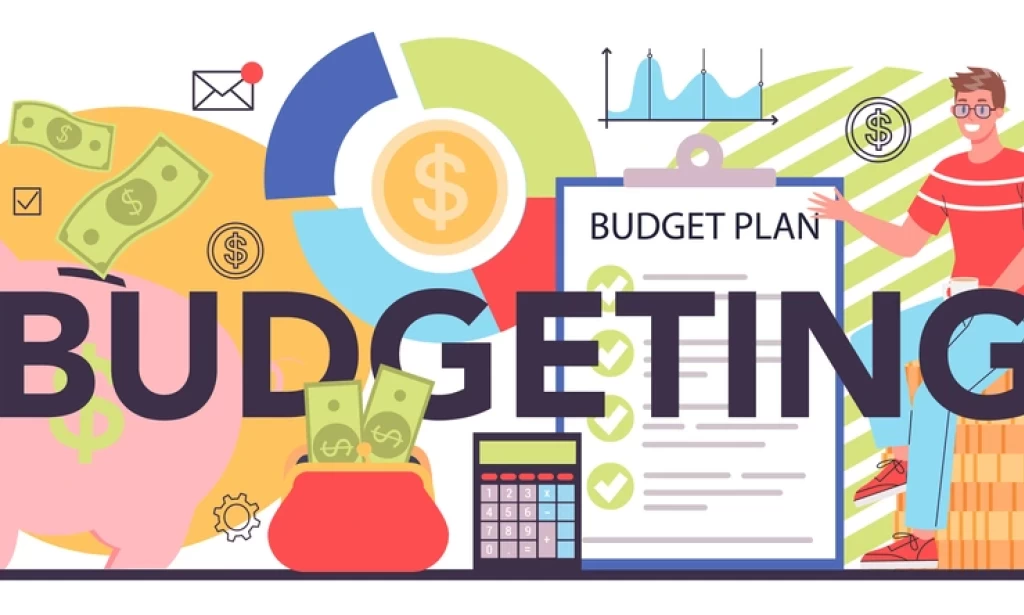Creating a budget is an essential step toward gaining control over your financial future. It empowers you to make informed decisions, save for your goals, and effectively manage your expenses. However, budgeting can be a daunting task if you're unsure where to start. In this article, we will provide you with ten practical budgeting tips to help you gain financial stability and achieve your long-term goals.

Assess Your Financial Situation:
Before diving into budgeting, take a comprehensive look at your current financial situation. Analyze your income, expenses, debts, and savings. This assessment will give you a clear picture of where your money is going and allow you to set realistic financial goals.
Set Clear Goals:
Establishing financial goals is crucial for effective budgeting. Determine your short-term objectives, such as paying off debt, saving for a vacation, or buying a new car, as well as long-term goals like retirement planning or purchasing a home. Clear goals will guide your budgeting decisions and keep you motivated.
Track Your Expenses:
To develop an accurate budget, track your expenses for a month or two. Categorize your spending and identify areas where you can cut back. Numerous smartphone apps and online tools can assist you in monitoring your expenditures effortlessly.
Differentiate Between Needs and Wants:
Distinguish between essential needs and discretionary wants. Prioritize your needs, such as housing, food, utilities, and debt payments, before allocating funds for wants like entertainment, dining out, or shopping. This differentiation will help you make conscious spending choices and prevent overspending.
Create a Realistic Budget:
Based on your financial assessment and expense tracking, design a budget that reflects your income and expenses accurately. Allocate funds for each category, ensuring you prioritize savings and debt repayment. Be realistic about your spending habits and adjust your budget accordingly to make it sustainable.
Use the 50/30/20 Rule:
A popular budgeting guideline is the 50/30/20 rule. Allocate 50% of your income to essential expenses, 30% to discretionary spending, and 20% to savings and debt repayment. Adjust these percentages as per your financial goals and priorities, but maintaining a balance between needs, wants, and savings is crucial.
Automate Savings:
Take advantage of automated tools offered by banks and financial institutions to streamline your savings. Set up automatic transfers that deposit a portion of your income directly into a savings account or investment vehicle. This approach ensures consistent savings without the temptation to spend the money elsewhere.
Cut Back on Expenses:
Identify areas where you can reduce your expenses without compromising your quality of life. Review your subscriptions, negotiate bills, cook at home more often, or opt for affordable alternatives. Small adjustments can add up significantly over time and contribute to your financial well-being.
Pay Off Debt Strategically:
If you have debts, prioritize paying them off strategically. Consider using the debt snowball or debt avalanche method. The debt snowball focuses on paying off the smallest debt first, while the debt avalanche tackles high-interest debts. Choose the approach that suits your personality and financial circumstances.
Review and Adjust Regularly:
Lastly, remember that budgeting is not a one-time task but an ongoing process. Regularly review your budget, track your progress, and make necessary adjustments. Life circumstances change, and your budget should adapt accordingly. Stay flexible and committed to your financial goals.
Mastering the art of budgeting is essential for achieving financial success. By assessing your financial situation, setting clear goals, and following these ten practical budgeting tips, you can take control of your finances and pave the way toward a secure and prosperous future. Remember, budgeting requires discipline and perseverance, but the rewards are well worth the effort. Start today and watch your financial dreams turn into reality.



You must be logged in to post a comment.